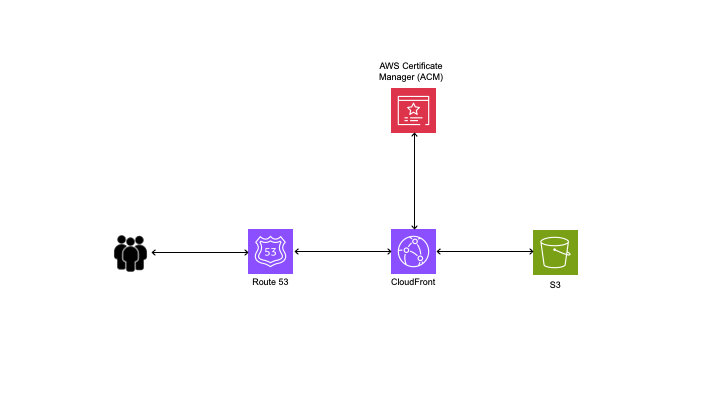Imagine being able to store and access your data securely and effortlessly, without the need for physical storage devices or complex infrastructure. This is the power of Amazon AWS Unveiled: The Power of Cloud Computing Hosting. With cloud computing, businesses and individuals can harness the strength of the cloud to enhance their productivity, scalability, and overall efficiency.
Amazon AWS Unveiled is a game-changer in the world of cloud computing hosting. Its history dates back to 2002 when Amazon Web Services was first launched, offering a simple storage service. Fast forward to today, and AWS has grown into a comprehensive suite of cloud services that caters to the needs of organizations of all sizes. With over 200 fully-featured services, AWS provides flexible and reliable solutions for computing power, storage, networking, analytics, machine learning, and more.

Introduction to Amazon AWS
Cloud computing has revolutionized the way businesses operate by providing scalable and flexible solutions for computing resources. One of the leading players in the cloud computing industry is Amazon Web Services (AWS). AWS is a comprehensive cloud computing platform offered by Amazon.com, which provides a wide range of services such as computing power, storage, databases, and networking, among others, over the internet. With AWS, businesses can leverage the power of cloud computing to host applications, store data, and scale their operations without the need for costly physical infrastructure.
Amazon AWS offers several advantages over traditional on-premises hosting solutions. Firstly, it eliminates the need for businesses to invest in expensive hardware and equipment. Instead, users can simply access the computing resources they require from AWS’s vast infrastructure. It also provides the flexibility to scale resources up or down as per demand, ensuring that businesses only pay for what they use. Furthermore, AWS’s global presence allows businesses to reach a worldwide audience by hosting their applications and services in multiple regions. The power of cloud computing hosting through AWS is undeniable, and in this article, we will explore the various aspects of Amazon AWS and its impact on cloud computing.
To learn more about how Amazon AWS can transform your business and optimize your cloud hosting, click here to visit our website.
The Evolution of Cloud Computing
Cloud computing has come a long way since its inception. Initially, businesses relied heavily on physical servers and IT infrastructure to host their applications and store their data. However, this posed several challenges, including high upfront costs, maintenance complexities, and limited scalability. The advent of cloud computing revolutionized the hosting industry by offering an innovative solution to these challenges.
The concept of cloud computing involves the provision of computing resources over the internet, accessible on-demand, and charged either on a pay-per-use basis or through a subscription model. This drastic shift eliminated the need for businesses to manage and maintain physical servers, allowing them to focus on their core competencies. Additionally, cloud computing offered scalability, meaning businesses could easily scale their resources up or down to meet fluctuating demand, leading to cost savings.
Amazon AWS played a significant role in shaping and popularizing the cloud computing industry. The launch of AWS in 2006 marked a pivotal moment in the evolution of cloud computing. Amazon leveraged its expertise in managing vast data centers and opened up its infrastructure to businesses, allowing them to benefit from the scale and efficiency of Amazon’s architecture.
With the introduction of AWS, businesses no longer needed to invest in physical infrastructure and could instead leverage Amazon’s robust and secure cloud platform. This marked the beginning of a new era in hosting solutions, offering businesses greater agility, scalability, and cost-efficiency. Since then, AWS has continued to innovate and expand its services, setting the standard for cloud computing hosting.
AWS Infrastructure and Services
AWS offers a diverse range of services that cater to the needs of businesses of all sizes, from startups to enterprise-level organizations. Its comprehensive suite of services covers all aspects of cloud computing hosting, including compute, storage, databases, and networking, among others. Let’s explore some of the core AWS services:
1. Amazon Elastic Compute Cloud (EC2)
Amazon EC2 is one of the key services offered by AWS. It provides resizable compute capacity in the cloud, allowing businesses to quickly scale their resources up or down based on their needs. EC2 instances are virtual servers that can be easily provisioned, providing businesses with complete control over their computing environment. This service eliminates the need for businesses to invest in physical servers and enables them to pay only for the compute capacity they use.
Amazon EC2 offers a wide range of instance types to cater to different workloads, from small applications to large-scale enterprise deployments. It also provides features such as load balancing, auto-scaling, and virtual private networks (VPNs) to enhance the performance and security of applications hosted on EC2.
By leveraging Amazon EC2, businesses can achieve high performance, scalability, and flexibility in hosting their applications, making it an essential component of AWS’s cloud computing hosting capabilities.
2. Amazon Simple Storage Service (S3)
Amazon S3 is a highly scalable and durable object storage service provided by AWS. It allows businesses to store and retrieve large amounts of data from anywhere on the web. With S3, businesses can benefit from low-cost storage options, high data availability, and reliable data protection.
Amazon S3 serves as an ideal solution for various use cases, such as backup and restore, content distribution, and data archiving. It also integrates seamlessly with other AWS services, enabling businesses to build robust and scalable applications that require storage of large volumes of data.
Overall, Amazon S3 provides businesses with a secure and cost-effective storage solution, further enhancing the power of cloud computing hosting through AWS.
3. Amazon Relational Database Service (RDS)
Amazon RDS is a managed database service offered by AWS. It allows businesses to set up, operate, and scale a relational database in the cloud with ease. RDS supports multiple popular database engines, including MySQL, PostgreSQL, Oracle, and Microsoft SQL Server, providing businesses with a flexible and reliable database solution.
By leveraging Amazon RDS, businesses can offload the complexities of database administration tasks, such as provisioning, patching, and backups, to AWS. RDS provides automated backups, automated software patching, and high availability with automatic failover, ensuring that businesses can focus on their core operations without worrying about database management.
With the power of Amazon RDS, businesses can efficiently manage their database workloads, enabling seamless integration with their applications hosted on AWS.
Benefits of Amazon AWS
Amazon AWS offers numerous benefits to businesses that choose to adopt cloud computing hosting. Let’s explore some of the key advantages:
1. Scalability and Flexibility
One of the primary advantages of Amazon AWS is its scalability and flexibility. Businesses can easily scale their resources up or down as per demand, ensuring that they have the appropriate computing power and storage to handle their workload. This scalability allows businesses to effectively manage peaks and troughs in demand without incurring unnecessary costs.
Furthermore, AWS offers a wide range of instance types and storage options, allowing businesses to choose the most suitable configuration for their applications. This flexibility ensures that businesses can optimize their infrastructure to meet specific requirements, resulting in improved performance and efficiency.
By leveraging the scalability and flexibility of AWS, businesses can adapt quickly to changing market dynamics and scale their operations effortlessly.
2. Cost Efficiency
Amazon AWS offers a pay-as-you-go pricing model, meaning businesses only pay for the resources they consume. This cost-effective approach eliminates the need for large upfront investments in hardware and infrastructure. Instead, businesses can allocate their IT budget more efficiently and invest in innovation and growth initiatives.
Additionally, AWS’s pricing structure allows businesses to take advantage of economies of scale. As more businesses adopt cloud computing hosting through AWS, the cost per unit of computing power decreases, resulting in further cost savings.
With AWS, businesses can optimize their IT spend and achieve cost efficiency without compromising on performance or reliability.
3. Reliability and Security
Amazon AWS is renowned for its robust and secure infrastructure. With multiple data centers located worldwide, AWS provides high availability and redundancy, ensuring that applications hosted on its platform experience minimal downtime.
AWS also offers a wide range of security features and compliance certifications to protect businesses’ sensitive data. These include encryption at rest and in transit, user access controls, and threat detection and monitoring tools. By leveraging AWS’s security features, businesses can ensure the integrity, confidentiality, and availability of their data.
Overall, the reliability and security offered by AWS make it a trusted choice for businesses requiring a secure and resilient cloud computing hosting solution.
Conclusion
In conclusion, Amazon AWS is a powerful platform that has revolutionized cloud computing hosting. With its wide range of services, scalability, flexibility, cost efficiency, and security features, AWS offers businesses an unparalleled solution for hosting their applications and managing their data. By leveraging AWS’s infrastructure, businesses can streamline their operations, reduce costs, and focus on driving innovation and growth. If you want to learn more about how Amazon AWS can transform your business and optimize your cloud hosting, click here to visit our website.

Cloud computing hosting has become a powerful solution offered by Amazon AWS.
With the ability to store and access data and applications remotely, businesses can enjoy greater flexibility, scalability, and cost-effectiveness.
Amazon AWS offers a wide range of services, including virtual servers, storage, databases, and machine learning, providing businesses with the tools they need to succeed in the digital age.
By eliminating the need for physical servers and infrastructure, cloud computing hosting allows businesses to focus on their core competencies and be more agile in a rapidly changing market.
With Amazon AWS, businesses can easily scale their resources up or down based on demand, ensuring they have the right capacity at the right time.
Overall, Amazon AWS has revolutionized the way businesses approach hosting, offering a reliable and cost-effective solution that is essential for businesses of all sizes in today’s digital landscape.


